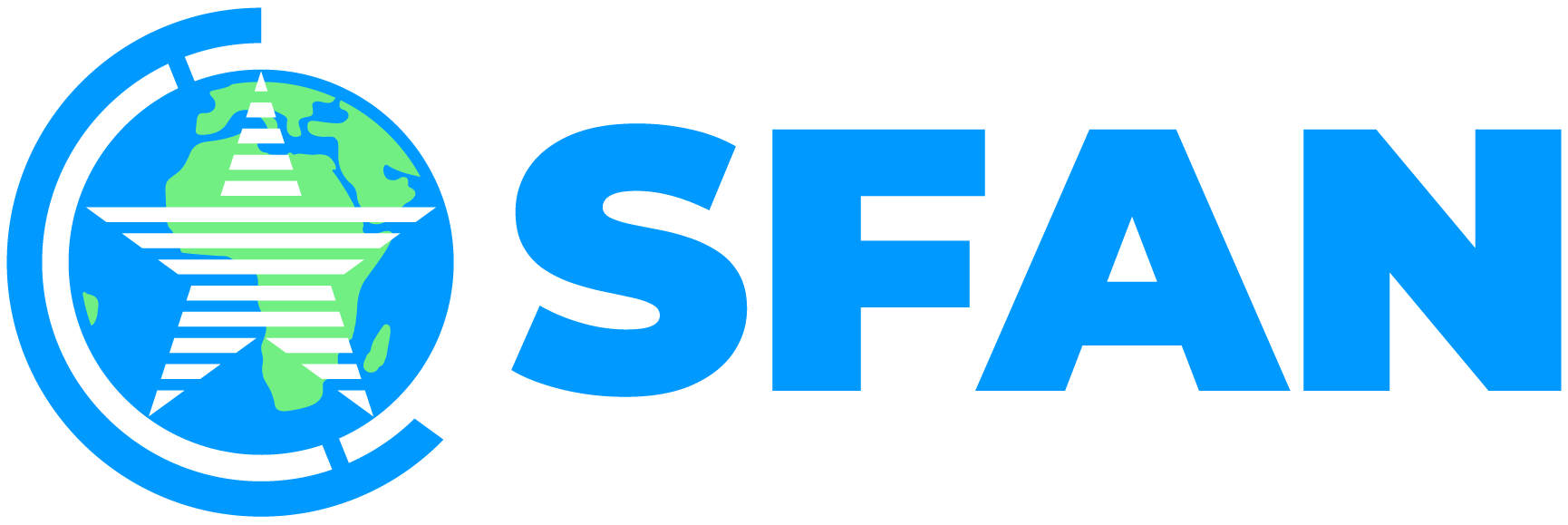Unlocking Africa's Potential: 3 Game-Changing Strategies to Fix the Higher Education Crisis
by Tom-Chris Emewulu · Inspiration
Tue, 06 Nov 2018 · 3 minute read
Share
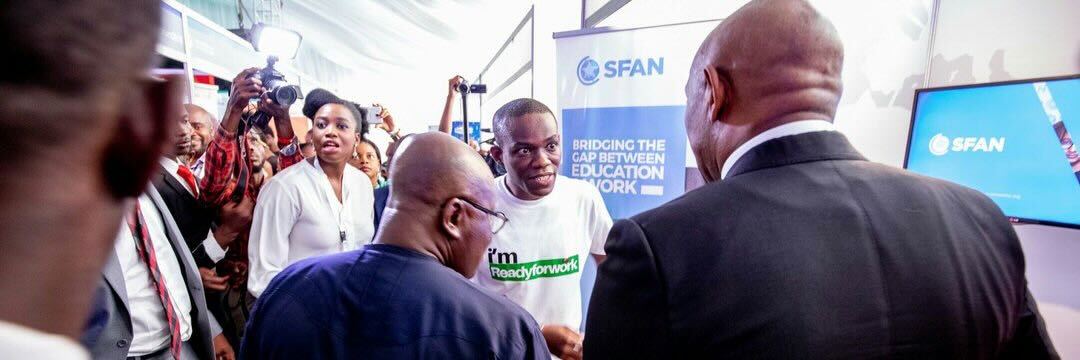
On October 25, I had the privilege of representing SFAN at the Tony Elumelu Foundation Forum, 2018, where 5,000 entrepreneurs, business leaders, and heads of state gathered to discuss various topics around economic development in Africa.
I was opportune to be one of the select marketplace vendors that hosted the President of Ghana, His Excellency Nana Akufo-Addo, and the Founder of the Tony Elumelu Foundation, Mr. Tony Elumelu. The meeting allowed me to share my thoughts on how to fix Africa's education system with both men.
This article seeks to extend that conversation.
The Reality
If you've been following the discussions on higher education in Africa, you know there's an urgent need to rethink and revamp the entire framework of the continent's education systems.
The handwriting on the wall is crystal clear. By 2050, Africa will be home to a billion young people. The continent’s future - and perhaps that of the world - hinges on investments in human capital. Regrettably, as it stands, all sub-Saharan Africa countries perform worse than the global average of the human capital index. While there has been incremental economic growth on the continent, the reality is that most African students are not learning the skills to make them competitive in today's digital economy. And if this trend continues, our future generation could be a lost cause.
The good news?
We have a window of opportunity to avert this catastrophe. Apart from drastically raising education financing from the current meager 10% (which, thankfully, the education commission seems to be attempting to accomplish), three vital areas need immediate attention for fixing the state of higher education in Africa.
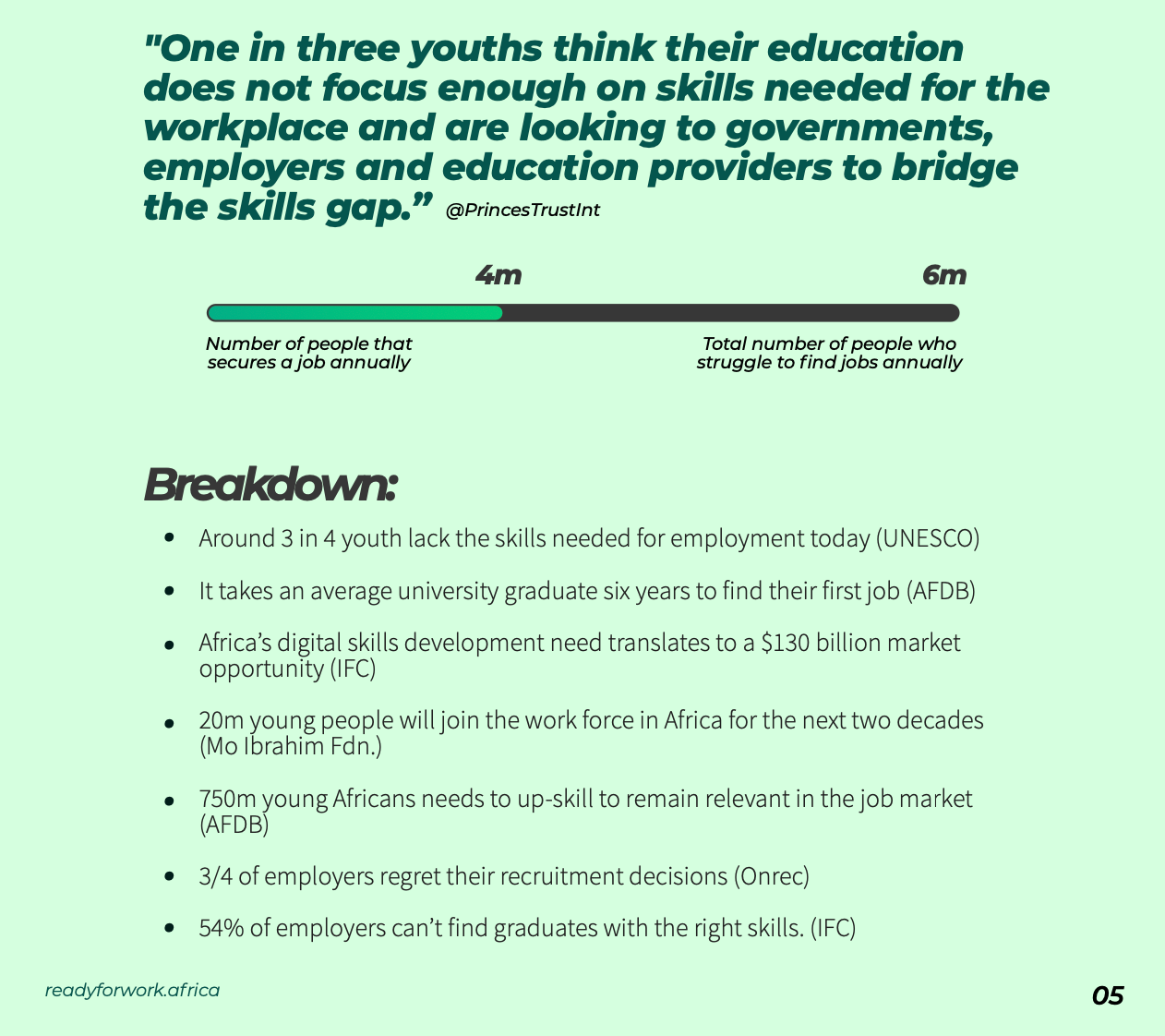
To be clear, this agenda will require bright and bold thinking -- and a desire to listen to alternative voices. So...here are my proposals:
1. Re-imagining Africa's Skills Development Frameworks
Fixing Africa's higher education will require rethinking the continent's skills development frameworks.
Over the past five years, our work at SFAN has centered around creating programs and events that bring together stakeholders from business, academia, government, media, and civil society. The goal? To spur new pathways for equipping young people with skills, helping them thrive in the 21st-century economy.
Our extensive research and survey of the root causes of youth unemployment in Africa reveal notable issue areas:
- Mismatch of skills between labor market needs and education for entry-level talents,
- Insufficient employment opportunities to absorb university graduates,
- Lack of coaching and youth support services,
- Lack of access to job sources,
- Lack of network and community.
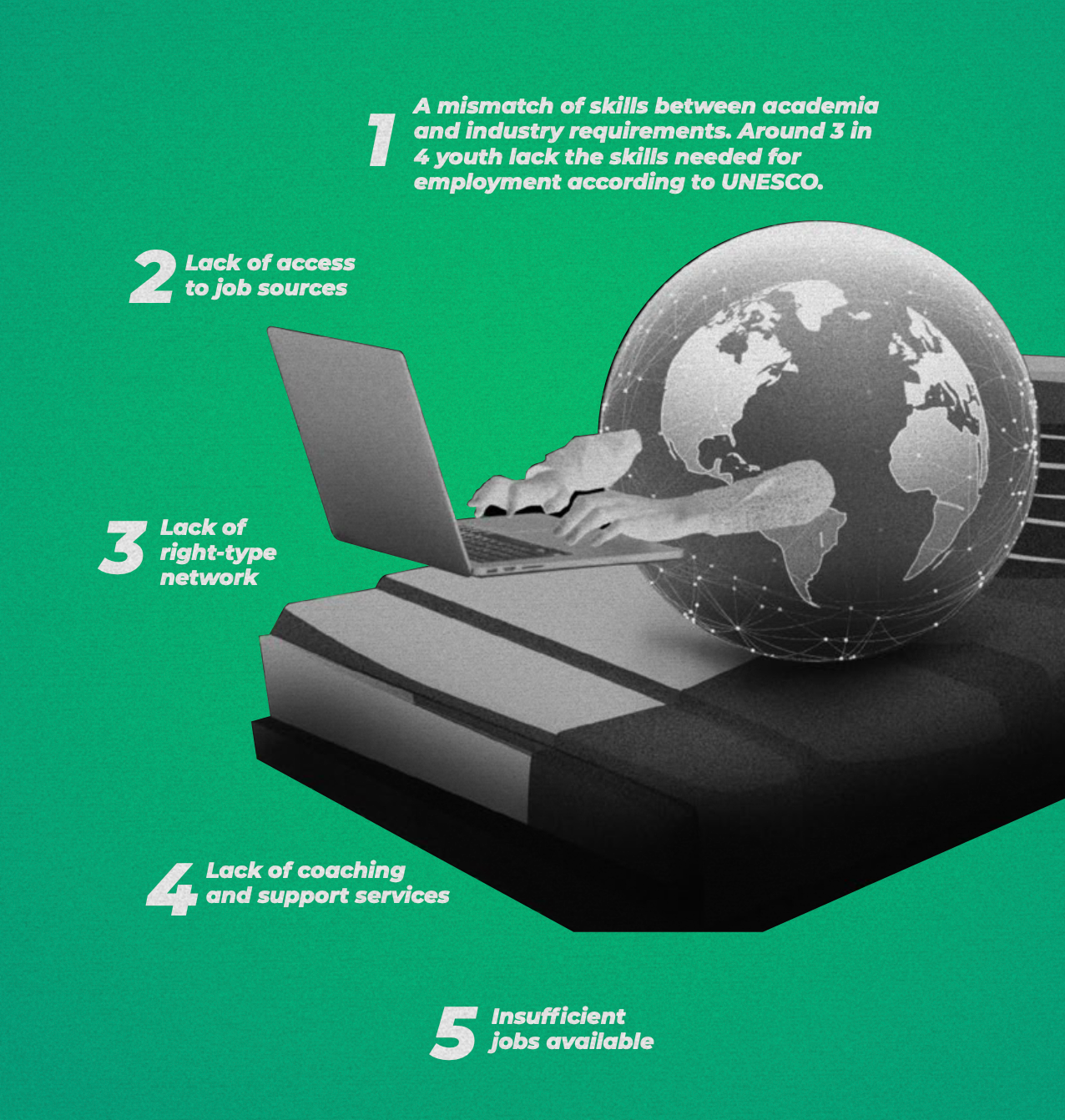
These disconnects inspired me to set up the Readyforwork digital career accelerator, unlocking the potential of Africa's budding talents and helping them become part of the global workforce. With a ready workforce, employers on the African continent need upskilled talent to take advantage of the global economic boom.
Unveiling ReadyforWork
For entry-level job seekers and early career professionals who need tools, services, and support to learn new digital skills to launch or future-proof their careers, ReadyforWork offers an Al-assisted education solution with a market-aligned curriculum, clear career path and tools to prove their skills to prospective employers.
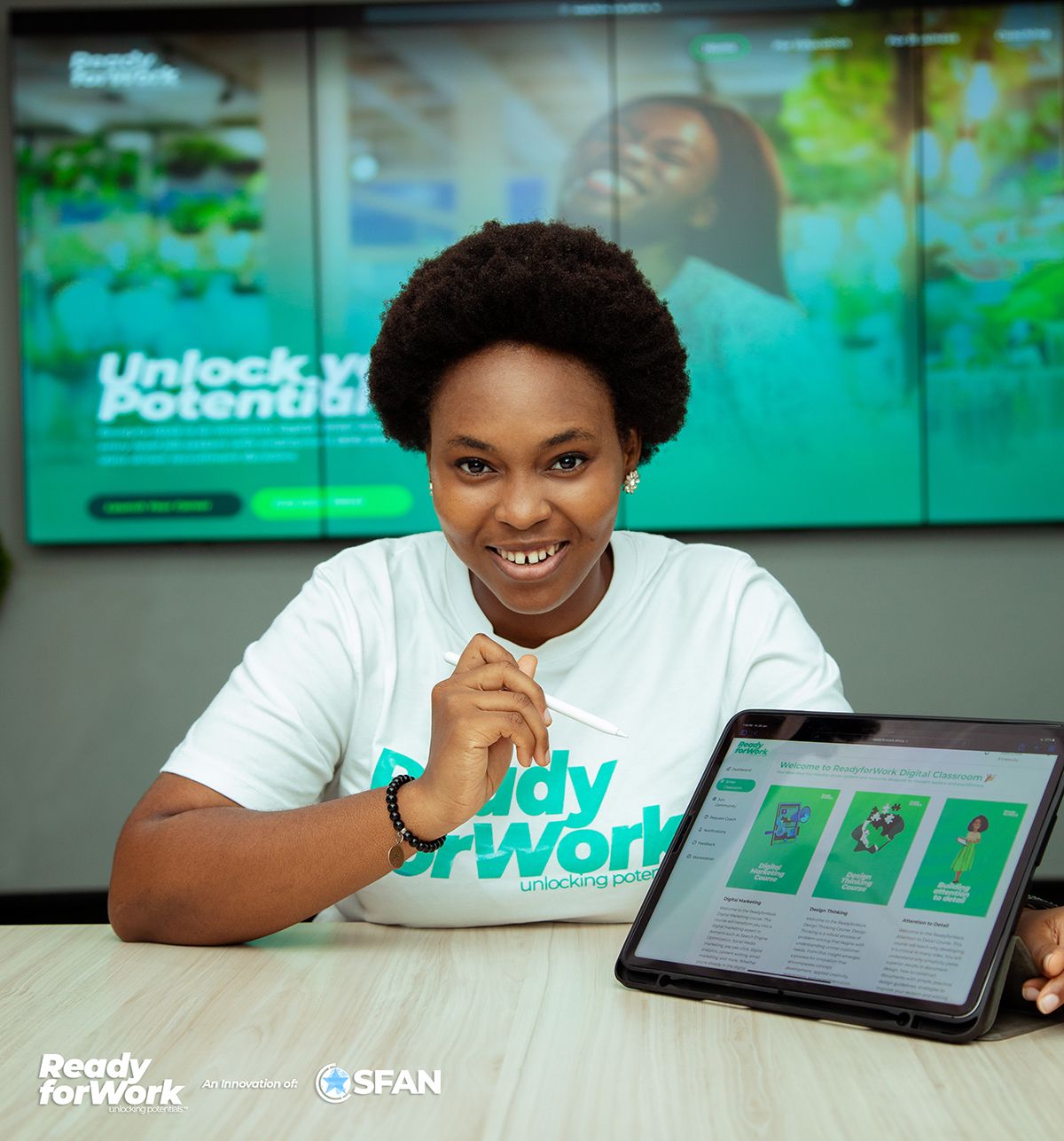
The platform is a two-sided marketplace. It helps learners understand how they stack up against their competition, gives them resources to level up and become of higher value when looking for gainful and meaningful work, and gives employers access to an emerging talent pipeline for a global workforce -- with data-driven mechanisms to assess that talent.
Unlike other training programs that major in providing certifications, which do not work, ReadyforWork focuses on making students minimally viable for their career aspirations through project-based, industry-driven training models and coach support, and gives them tools to turn that skill into businesses and fulfilling careers.
How ReadyforWork Works
ReadyforWork leverages strategic partnerships with employers and entrepreneurs in high-growth industries to help learners experience a market-aligned curriculum and create successful careers.
Our success-based pricing means learners can enjoy high-value, data-driven education at less than 30% of the cost of traditional programs. Whether you're looking for a new job, want to upskill to future-proof your career, or turn your passion into a business, ReadyforWork provides personalized, project-based learning, 1:1 career coaching, and career pipelines that help participants unlock their potential.
Unique Benefits With Transformational Results
ReadyforWork sets itself apart from the competition because of its intense focus on deep education with project-based programming. Some unique benefits include:
- Market-Aligned Curriculum: A market-aligned curriculum means students learn from industry practitioners, not individuals who never practiced what they're teaching in real life.
- Project-Based Learning: The project-based learning framework allows learners to solve real business problems for actual companies, not made-up case studies, with zero accountability.
- Personalized Education: Personalized education helps learners access tailored materials that meet their career needs where they are and track their progress with actual data.
- Ongoing Career Support: With the community support and job pipeline, ReadyforWork learners get the tools, services, and support systems they need to turbocharge their careers.
Every candidate who graduates from our program can be sure they are ReadyforWork! Watch Kezia Owusu's remarkable impact story:
That brings us to the second key to fixing Africa's higher education crisis:
2. Funding Alternative Education Models
I believe, and research shows, that today's mainstream education system has outlived its purpose.
Over one hundred years ago, factory owners, who didn’t have enough compliant factory workers, invented the system. It made sense to arrange kids in rows, tell them what to think, and make them compete for grades. It worked excellently.
A hundred years later, technology has disrupted the workplace. Automation and robots have taken over many factory jobs. And collaboration has become more significant than competition. Yet, many African universities still use the archaic teaching mode. Their curriculum has not kept pace with the changing nature of work.
Experts have said that the future of work will not be about college degrees but about job skills. A viral CNBC article recently compiled a list of top employers that no longer require employees to have a college degree. We are moving into an era of an alternative education system.
Alternative education models, like SFAN’s ReadyforWork, are rethinking skill development, giving every talent an equal chance through personalized, industry-driven, project-based education. We are leveraging data to curate and tailor content to the needs of learners instead of a one-size-fits-all system.
This innovative education model, if scaled, will ensure that the 10-12 million youths entering the workforce in Africa can effectively unlock their employment and entrepreneurial impulses. The social contribution of job creation and workforce readiness is unmistakable. “Africa’s young people could enrich not only this continent but the world economy and society at large.”
Consequently, governments and private sector venture capital agencies should design and establish special funding instruments to help education technology platforms like ReadyforWork reach full scale. As it stands, Sub-Saharan Africa’s early-stage ventures (including education technology entrepreneurs) face a considerable financing gap of $331 billion, according to the IFC. This needs to change!
3. Multi-stakeholder Collaboration
Governments and development partners must acknowledge the need to find, document, and publicize working models for human capital development. For example, our research shows that the lack of reliable data on product quality, details on the skillsets of the startup teams, the absence of credible information on startups' creditworthiness, and a harmonized database on tech startups pose a significant challenge to investors and investing agencies.
Insufficient media reports on ecosystem growth, including awareness of startup programs and activities to increase business culture, also hinder startups from gaining exposure and building credibility for funding opportunities.
As I told President Akufo-Addo in Lagos, this is why initiatives like the Tony Elumelu Foundation Entrepreneurship Program play crucial roles. Bringing stakeholders at various levels under one roof helps spark meaningful conversations to uplift the ecosystem.
On our part, we've created over 20 growth-focused networking events for that purpose. Our events and research publications are contributing to formulating skills development policies linked to labor market demands.
In conclusion, the economic case for investing in Africa’s human capital is that it is the continent’s most important resource and the surest way of ending poverty in Africa.
“If Africa’s children are educated and equipped with the skills to succeed in the twenty-first-century economy, the entire continent will prosper. But if they are denied a quality education, Africa’s economic progress will be slowed, stunted, or even thrown into reverse." Clearly, countries like Finland and Singapore are quite ahead of the curve by "giving more time to exercises that will involve a synthesis of knowledge from various subject areas." - Strive Masiyiwa
Now is the moment for Africa. Join us to unlock the potential of Africa's young geniuses. Partner SFAN today!

